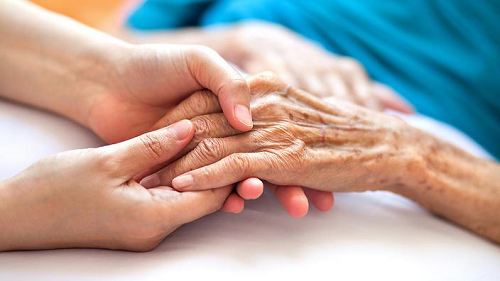
In Singapore, aging population and rising medical costs have increased the pressure on the healthcare system. Medical care for patients, particularly those suffering from serious illnesses such as cancer and chronic diseases, has become increasingly costly and inaccessible to most of them. Studies suggest that a large proportion of Singapore’s population are at high risk from medical problems including cancer, heart disease, stroke and kidney failure.
Singapore is one of the most densely populated countries in the world with an estimated population of 5 million people, making it imperative to provide appropriate palliative care and support to patients and their families. Palliative care is a continuum of care and treatment that focuses on maintaining and sometimes improving the quality of life for patients who are seriously ill, and their loved ones.
Palliative care can provide relief from suffering; help with management of painful symptoms; provide the necessary continuity of care after severe illness and death; and help to prevent further deterioration in condition. The aim is to improve overall quality of life, not just prolong survival.
What is palliative care?
Palliative care is often referred to as symptom management or symptom relief. It focuses on relieving pain and other physical symptoms, reducing anxiety and helping patients adjust to an inevitable life after serious illness.
The quality of life during the final stages of life is as important to the patient as it is to their caregivers. This may include:
- Promoting and maintaining a positive outlook and attitude towards illness, death and dying.
- Reducing anxiety and fear.
- Improving the ability to cope with unexpected changes in life.
- Encouraging a sense of control over pain and other symptoms. For example, by providing a limited course of medication or therapy which can be stopped at any time.
- Improving communication between patients and their families.
- Improving the patient’s ability to plan for the future, including dying, or dying peacefully with dignity.
What are the types of palliative care?
Palliative care is a continuum of care and treatment that focuses on relieving the symptoms caused by illness or injury, rather than curing the disease itself. It aims to improve overall quality of life, not just prolong survival.
3 main types of palliative care
Medical Palliative Care
Medical palliative care services are provided by a healthcare provider for a patient who has a serious illness or life-threatening disease. It aims to relieve symptoms, reduce pain and manage physical disabilities.
Hospice Care
This is provided by a healthcare provider, community agency or hospice to provide pain relief and symptom management for patients who are dying or close to death.
Compassionate Care
This is provided by a healthcare provider, family member or friend to help relieve suffering and improve quality of life for end-of-life patients.
Who provides palliative care in Singapore?
There are many healthcare professionals who will have been trained in palliative care. Palliative care in Singapore is provided by a range of different healthcare providers, including the following.
Private physicians
Physicians who are trained in palliative medicine or specialist physicians may be able to provide inpatient care and day care services.
Hospice care hospitals
Hospice care aims to provide end-of-life care to seriously ill patients, including palliative care. The hospice care usually takes place at within community hospitals, nursing homes and hospice facilities. Typically, patients who are at the end of their lives with an incurable illness will receive hospice care.
Home care for patients
Home care services are provided by nurses or other medical social workers who visit patients, either weekly or daily, to provide support and assistance in the patient’s home. This may involve providing assistance with daily activities, such as dressing, toileting, bathing and feeding. It is also important to discuss with the healthcare professional about the patient’s condition and needs regularly.
What to look out for when choosing a facility for palliative care in Singapore?
Vulnerable patients, such as the elderly and those with terminal illnesses, often require support from both healthcare providers and their families. To help you make an informed decision about your treatment, here are some points to consider.
Quality of staff
Is the hospital you are considering suitable to provide palliative care? The following points should be considered.
Is there a high level of training in palliative care among the team of healthcare professionals who look after your loved one?
Is there a high level of collaboration between palliative care specialists and medical specialists, providing a holistic approach to the patient’s treatment and care?
The palliative care team
Who will be looking after your loved one? Does the treatment plan involve palliative care specialists?
How many members of the team will be responsible for looking after the patient? Will they provide the patient with adequate support and care?
Will you be able to communicate with the team easily, particularly during times of crisis for the patient?
The patient’s needs
What will your palliative care team do for your elderly loved one during the last weeks of life? Will they monitor your elderly loved one’s condition regularly, providing constant support and encouragement? What will they do to relieve the patient’s pain?
What will be the nature of conversations with the palliative care team? Do the healthcare professionals provide regular consultative services regarding the status and condition of your elderly loved one?
Final words
In conclusion, palliative care in Singapore is important to ensure that patients and their families can live comfortably during the final days of life.
It is important that palliative care be provided from the beginning of a patient’s illness until his or her final days of life. If palliative care is not available, patients may suffer emotional and social pain as well as physical pain. With proper palliative care, however, patients may feel that their lives have been enhanced by the end-of-life experience.
We hope you’ve enjoyed reading this article! Check out our other blog articles for more additional information on eldercare in Singapore.
